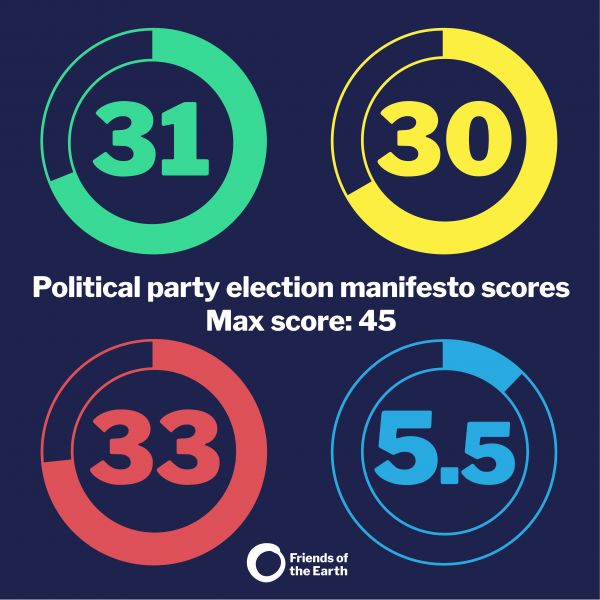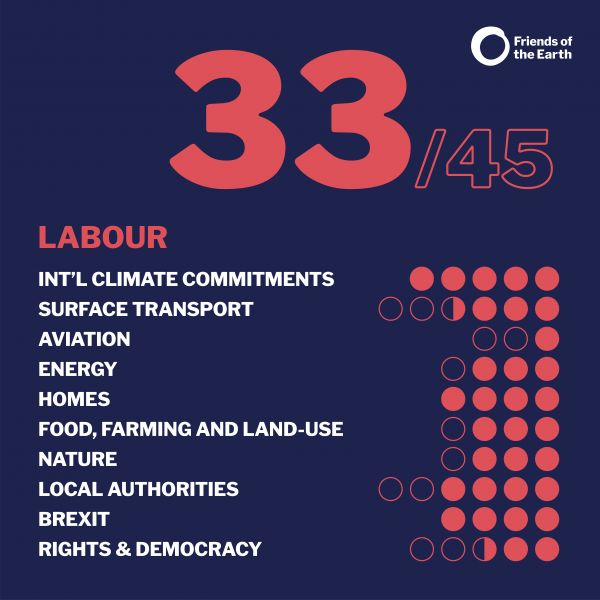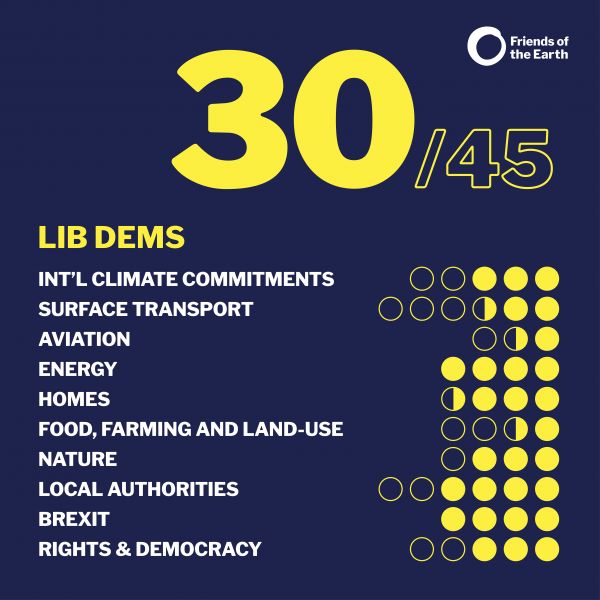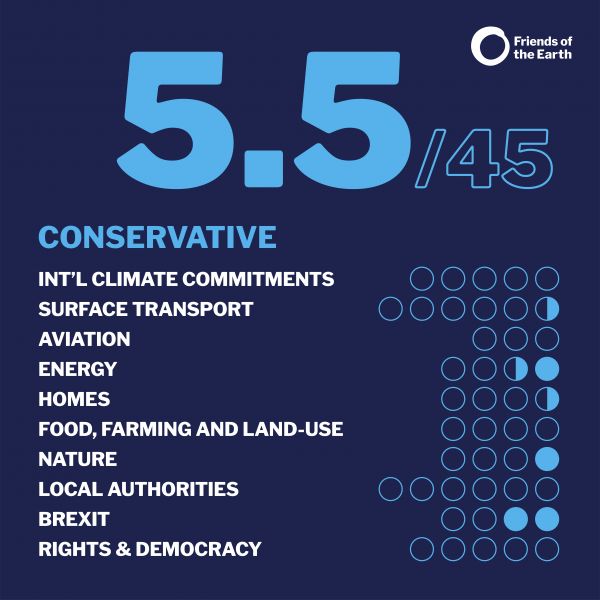
Published on the Friends of the Earth website on the 7th December 2019
Story by Dave Timms
The final scores are in! Friends of the Earth have combed through the party manifestos (and any additional pledges they’ve made during the campaign) to see how they score on tackling the climate and ecological emergency. These are the results…
The 2019 General Election has taken place under the shadow of the climate and nature emergencies. In recent months flooding and wildfires have blighted lives and devastated communities both here and abroad, and over the past year there has been an unprecedented level of concern from the public, led by the voices of the young.
Earlier in 2019 UK Parliament declared a climate emergency, but despite adopting a new target to reach net zero greenhouse gas emissions, action to cut emissions has stalled and our transport emissions are rising. The announcement of a General Election gave political parties the chance to rise to the challenge and set out the policies needed to address this emergency.
So how do the party manifestos score?

How did we arrive at those scores?
We marked the Conservatives, Green Party, Labour, Lib Dem manifestos against our own manifesto covering ten policy areas including transport, food, nature, climate targets, energy and local action. The manifestos were given a final score out of 45 (which was shared with each party), and we published an initial overview of the manifestos which was shared with the public.
After being sent their initial score following the publication of their manifestos, Friends of the Earth allowed a short additional period during which we would include additional pledges, clarifications or restatement of existing policies made in public or sent to us for publication, which might have been left out of manifestos – but form part of the party’s policies for Government.
Our final detailed assessment took these changes into account, and saw Labour, Lib Dems and Greens all score highly, but with the Labour Party given a slightly higher mark overall. The Conservative Party scored poorly and its manifesto was judged to be missing significant commitments in numerous areas, inadequate policies in others, with actively damaging policies in transport.
The Labour Party manifesto from the start contained very strong, funded policies on home energy efficiency and renewable energy. Additional environmental commitments were subsequently announced during their election campaign, including an ambitious pledge on tree planting, a detailed policy on food and commitment to strong environmental law and enforcement in its “Plan for Nature”, plus significant public transport and cycling announcements.

A letter sent to Friends of the Earth from 4 Labour Shadow Secretaries of State went further than the manifesto in key areas. The letter stated a strong preference for a frequent flyer levy to manage demand for aviation, promising to review the Aviation National Policy Statement against much tougher carbon targets (and cancel Heathrow airport if it wasn’t consistent with those targets). It also pledged to divert funds directly from the current road building programme for public transport, walking and cycling projects.
The Lib Dems and Greens both also had a suite of policies which were consistently judged to meet, and sometimes exceed, Friends of the Earth’s policy demands. Both party manifestos include particularly strong policies on home energy efficiency and renewable energy, but scored lower than Labour overall.

The Lib Dems set out additional pledges to its manifesto in a letter to Friends of the Earth, recommitting to the policies in its previously published Climate Emergency policy document. However the Greens did not provide any additional clarification or restate previous pledges in a number of policy areas ahead of the deadline we set. A letter was subsequently received from co-leader Jonathan Bartley, which we have not included in the scoring document but have published for transparency.

Despite the Conservative Party manifesto including decent policies on plastics and agricultural subsidies, and a restatement of the moratorium on fracking, in sector after sector its commitments were invariably weaker than the other parties, entirely absent or just plain bad (take the road building programme, for example). Overall, their manifesto comprehensively fails to address the climate and nature emergencies, which are hurting communities right now and will deliver catastrophe in the future.

During this election Friends of the Earth’s supporters have also been asking parliamentary candidates from all parties to pledge to make climate change a deal-breaker in how they will vote if elected. Over 1,000 candidates to date in England, Wales and Northern Ireland have done so.
As a politically impartial organisation our aim is to ensure all parties have the strongest possible policies on the environment. We will hold the next parliament and government – whoever that may be – to the promises they have made to us and the public through their manifestos and pledges.

Follow Havant FOE